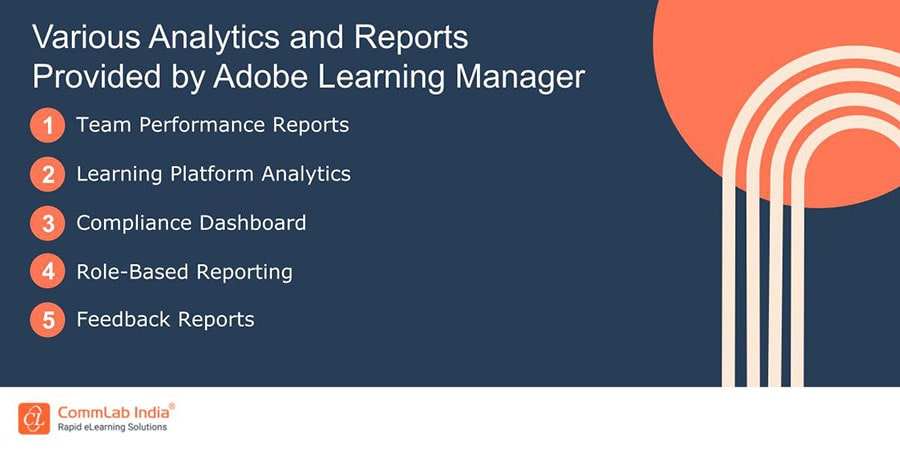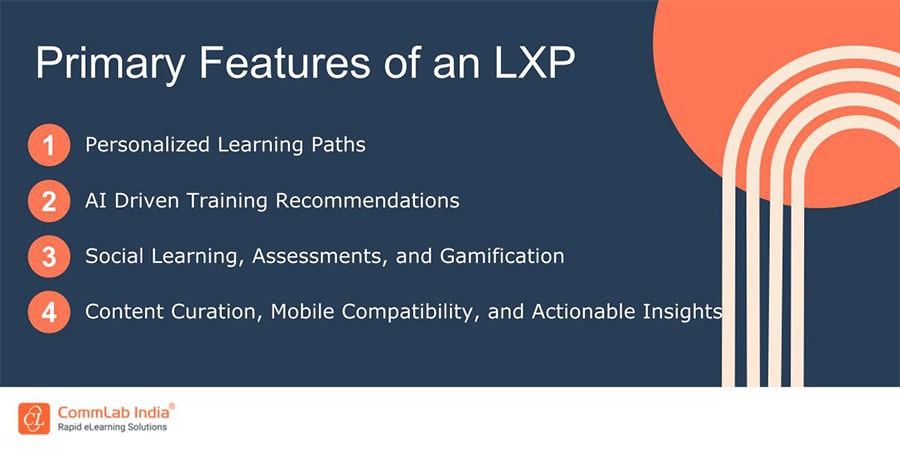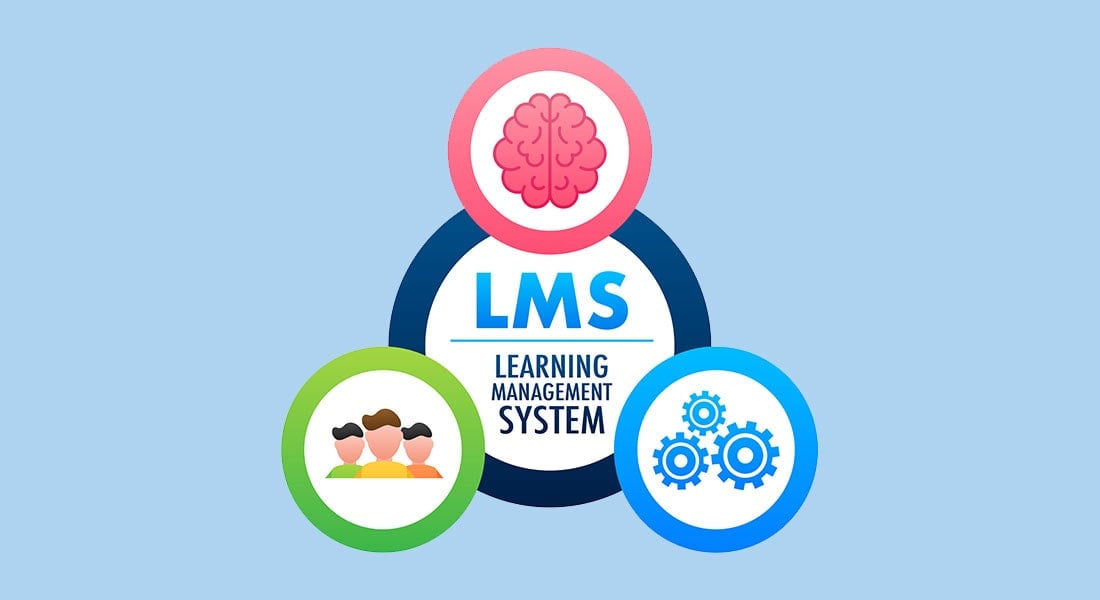Mastering Corporate Training: The 5 Best LMS Platforms to Consider
Discover the best LMS platforms for corporate training. Elevate your employee learning with our top 5 recommendations.

The landscape of corporate training has evolved significantly in recent years, with organizations increasingly turning to Learning Management Systems (LMS) to facilitate efficient, scalable, and engaging learning experiences for their employees. In this era of digital transformation and remote work, the choice of the right LMS platform can be a game-changer for businesses aiming to upskill their workforce and boost productivity. To help you navigate this vital decision, we've compiled a list of the "Top 5 LMS Platforms for Corporate Training."
Wondering Which LMS Platform to Choose for Your Corporate Training?
Here are a few popular ones -
- Moodle
- Adobe Learning Manager
- TalentLMS
- Docebo
- Absorb LMS
Top 5 LMS Platforms for Corporate Training in 2024
1. Moodle
Moodle is a highly regarded open-source Learning Management System (LMS) that has gained popularity in corporate settings. Its strengths lie in its flexibility, cost-effectiveness, and extensive feature set. One of Moodle's significant advantages is its open-source nature, which means it's freely available to users and can be customized to suit specific training needs. This makes it an attractive option for organizations looking to minimize costs. Moodle also boasts a broad community of users and developers, providing a wealth of resources, plugins, and support.
Moodle's feature set includes content creation and management tools, discussion forums, quizzes, and a grading system, making it suitable for a wide range of training and eLearning needs. It's also SCORM compliant, allowing for seamless integration with other eLearning content. Administrators have control over user roles, permissions, and can track learner progress through robust reporting and analytics features.
However, Moodle does have a learning curve, and setting up and customizing the platform may require technical expertise. In a corporate context, it might necessitate additional development or third-party integrations to meet specific business needs. Nevertheless, Moodle remains a popular choice for organizations seeking a cost-effective, highly adaptable LMS to manage and deliver training content.
→ Download Infographic Now: Why Do You Need an Extended Enterprise LMS?
2. Adobe Learning Manager
Adobe Learning Manager(ALM) is a Learning Management System (LMS) that stands out for its user-friendly interface, seamless integration with other Adobe products, and its focus on creating and managing eLearning content. One of the significant advantages of ALM is its intuitive and visually appealing user interface. It makes onboarding and navigation easy for both administrators and learners. The platform also offers robust analytics and reporting capabilities, providing valuable insights into learner progress and engagement.

Adobe Learning Manager is designed with content creation and management in mind. It allows organizations to develop and deliver eLearning content efficiently. Integration with Adobe Captivate, a popular eLearning authoring tool, enhances the platform's content creation capabilities. Additionally, it supports SCORM and AICC compliance, ensuring compatibility with a wide range of eLearning content.
However, its pricing can be on the higher side, which may be a drawback for smaller organizations with budget constraints. Some users might find the platform's interface overly simplified for more complex training needs, which could limit its suitability for highly specialized or technical training programs.
3. TalentLMS
TalentLMS is a cloud-based Learning Management System (LMS) that has gained popularity for its user-friendly interface, scalability, and versatility, making it a strong contender in the corporate training and eLearning space. One of TalentLMS's standout features is its ease of use. The platform is designed to be intuitive, allowing both administrators and learners to quickly adapt to the system. This user-friendliness is particularly beneficial for organizations looking to implement an LMS without extensive training or technical support.
Scalability is another key advantage of TalentLMS. It caters to a broad range of organizations, from small businesses to large enterprises. Users can easily add or remove learners as needed, making it suitable for companies with changing training requirements. TalentLMS is also known for its mobile-friendly design, enabling learners to access training content on various devices.
Additionally, it offers a free plan with limited features, making it a cost-effective choice for smaller organizations. However, some advanced customization options may be limited in TalentLMS, which could be a drawback for organizations with highly specialized training needs. While it's scalable, it may not be the best fit for very large enterprises with complex, extensive training programs.
While we are talking about so many LMS platforms, i hope you aren’t wondering whether you should invest in an LMS or not, and if such a thing has crossed your mind once, here’s a short video to clear the dilemma.
4. Docebo
Docebo is a versatile and comprehensive Learning Management System (LMS) known for its intuitive user interface and a wealth of features that cater to organizations of various sizes and industries. One of Docebo's standout features is its user-friendly interface. The platform is designed with simplicity in mind, ensuring that both administrators and learners can easily navigate and make the most of its features. The clean and organized layout contributes to a positive user experience.
Docebo offers a robust feature set, including content creation and management tools, social learning capabilities, gamification options, and AI-powered recommendations. This wide array of features empowers organizations to create engaging and effective training programs tailored to their unique needs. Docebo can be classified more as an LXP than an LMS. Here are a few features of an LXP to help you get a clear idea -

It also excels in integration and customization. It seamlessly integrates with numerous third-party applications, allowing organizations to connect it with their existing tools, systems, and workflows. This flexibility makes Docebo a suitable choice for a wide range of businesses.
While Docebo offers a strong set of benefits, it's worth noting that its pricing can be on the higher side, which may pose a challenge for smaller organizations or those with budget constraints. Additionally, some users may find the platform complex, particularly if they don't require all the advanced features.
5. Absorb LMS
Absorb LMS offers a highly intuitive and user-friendly interface that ensures a seamless experience for both administrators and learners. It excels in content management, accommodating a wide range of multimedia formats and ensuring SCORM compliance. Customization options are extensive, enabling organizations to tailor the platform to their specific training needs. The system's robust reporting and analytics tools empower organizations to track learner progress, compliance, and performance effectively.
Moreover, Absorb LMS is accessible on mobile devices, facilitating on-the-go learning. However, it's important to note that its pricing can be on the higher side, which may pose challenges for smaller organizations. Additionally, some users might find the initial setup and configuration process somewhat complex, potentially requiring a learning curve.
Wrapping Up!
Please note that the effectiveness of an LMS for your corporate training needs depends on various factors, including your organization's size, industry, budget, and specific training requirements. It's essential to thoroughly evaluate each LMS based on your unique needs and consider factors like scalability, user-friendliness, reporting capabilities, and integration options when making your decision. While we are talking about leveraging an LMS for employee training, having an LMS for extended enterprise training is equally crucial, and to help you understand more about it, here’s a free infographic to download.


![Extended Enterprise LMS — How it Can Level Up Corporate Training [Infographic]](https://no-cache.hubspot.com/cta/default/59327/289182da-2644-4b4f-b232-31452836972b.png)


